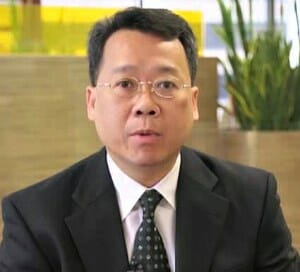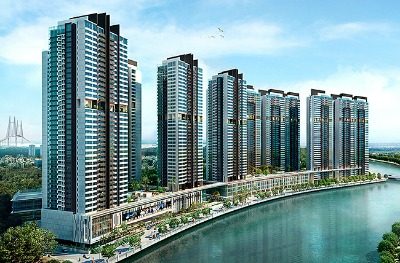
PwC’s KK So noted that countries like Vietnam are popular for their high yields
If you think that China’s first-tier cities such as Shenzhen and Shanghai are still the top bets for real estate investment in Asia, think again. The “Emerging Trends in Real Estate Asia Pacific 2017”, a real estate forecast jointly published by non-profit research institution Urban Land Institute and accounting firm PwC shows that investors are turning their sights to Vietnam.
Home to one of the fastest growing economies in Southeast Asia, Ho Chi Minh City is gaining momentum among the investment community due in part to it being the country’s main economic engine. The city posted economic growth of 7.5 percent year-on-year in the first half of 2016.
The report, which gauges the opinions of international real estate professionals, including investors, developers, property company representatives, lenders, brokers and consultants, noted the popularity of Vietnam comes as investors search for higher yields in Asia.
“This year’s Investment Prospects survey shows a strong shift away from last year’s favorites, which featured core markets in Japan and Australia. Instead it favors emerging-market destinations, with two Indian cities topping a list which also includes Vietnam, the Philippines, and Shenzhen. It is also notable that several gateway cities are in the bottom half of the list -– indicating their declining popularity,” KK So of PwC said.
Commercial Sector Is Enticing To Investors Considering Vietnam
Vietnam’s population of 93 million helps make it one of the most popular real estate investment destinations in Southeast Asia with capital arriving from Japan, Singapore and South Korea in recent years.
In the rapidly industrialising country, it is Ho Chi Minh City’s commercial market that is the rising star. The report credits economic growth fueled by regional trade deals, and Vietnam’s status as a “China plus one” destination for the city’s appeal.
In Vietnam, most of the ULI’s members favored development plays, although a nascent market also exists for completed assets, with new buildings being developed for investment purposes as opposed to strata sales. Investment yields are in the area of seven to eight percent.
However, market observers warned that challenges are still abundant in Vietnam, despite these potentially higher yields. One investor noted that office rentals are now higher in Ho Chi Minh City than in Bangkok, reflecting an overall shortage of supply that will probably take time to address.
Singapore And Japanese Firms Already Believers

Keppel Land announced that its Riviera Point project in Vietnam recorded high sales and was performing well
Singapore’s CapitaLand is looking to become office players in Vietnam announcing plans to launch a $500 million real estate fund targeting commercial real estate in the country. The developer continues to be active in Vietnam having bought a site in District 1 of Ho Chi Minh City for $51.9 million where it plans to build a 17-storey residential tower and a 22-storey serviced residence tower.
Meanwhile, CapitaLand’s rival Keppel Land is also busy in Vietnam with 20 retail and residential projects in Hanoi, Ho Chi Minh City, Dong Nai and Vung Tau. The Singapore-based firm acquired Gaw Capital’s stake in a $93.9 million mixed-use development in Ho Chi Minh City’s Thu Thiem New Urban Area earlier in 2016.
And it’s not just Singaporean outfits getting into the act. Vietnamese developer Nam Long Investment JSC and Japan’s Hankyu Realty and Nishi Nippon Railroad recently signed an agreement to develop the Kikuyu Residence project located in District 9 of Ho Chi Minh City for VND630 billion (US$28.17 million).
Leave a Reply